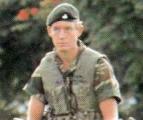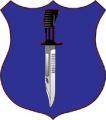Moderator's Note: moved to this relevant thread - simply as it is a classic 'How not to'
Entry Excerpt:
The Next Surge: Counterbureaucracy - Jonathan J. Vaccaro, New York Times opinion.
The Taliban commander was back in the village. Our base roared to life as we prepared to capture him. Two Chinook helicopters spun their blades in anticipation in the dark. Fifty Afghan commandos brooded outside, pacing in the gravel. I was nearby, yelling into a phone: “Who else do we need approvals from? Another colonel? Why?” A villager had come in that afternoon to tell us that a Taliban commander known for his deployment of suicide bombers was threatening the elders. The villager had come to my unit, a detachment of the United States Army stationed in eastern Afghanistan, for help. Mindful of orders to protect the civilian population, we developed a plan with the Afghan commandos to arrest the Taliban commander that evening before he moved back into Pakistan. While the troops prepared, I spent hours on the phone trying to convince the 11 separate Afghan, American and international forces authorities who needed to sign off to agree on a plan. Some couldn’t be found. Some liked the idea, others suggested revisions. The plan evolved. Hours passed.
The cellphone in the corner rang. “Where are you?” the villager asked urgently. The Taliban commander was drinking tea, he said. At 5 a.m. the Afghan commandos gave up on us and went home. The helicopters powered down. The sun rose. I was still on the phone trying to arrange approvals. Intelligence arrived indicating that the Taliban commander had moved on. The villagers were incredulous. This incident is typical of what I saw during my six-month tour in Afghanistan this year. We were paralyzed by red tape, beaten by our own team. Our answer to Afghans seeking help was: “I can’t come today or tomorrow, but maybe next week. I have several bosses that I need to ask for permission.” ...
More at The New York Times.












Bookmarks